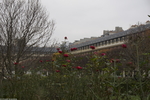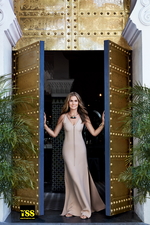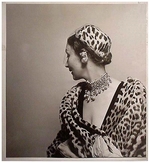Frapin L'Humaniste (2009): Clarity is to be Found in a Glass of Wine {Perfume Review} {Men's Cologne}

L'Humaniste is the latest perfume by Parfums Frapin, the perfumery branch of Cognac Frapin. For more background information you can go here as we already reviewed several of their perfumes which are all inspired by a love of wine country and the different facets of wines.
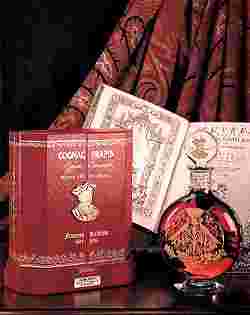
L'Humaniste is a reference in name and composition to Renaissance writer François Rabelais (ca. 1493- 1553) who is an ancestor of the Frapins.
He was the son of one Antoine de Rabelais and one Anne Catherine Frapin. The perfume, created by perfumer Sidonie Lancesseur of Robertet, was issued to follow up on the celebration of the 500th anniversary of François Rabelais. Associated with this gesture, Frapin have also launched a luxurious limited edition Cognac bottle called Baccarat Rabelais (see picture on the left) which was presented this year to wine collectors, also in celebration of the 100th anniversary of the technique and expression termed La part des anges (lit. the angels' share). As we know, it has now been borrowed as an adapted technique by Thierry Mugler to felicitously, in my opinion, apply to perfume-making and Angel in particular...
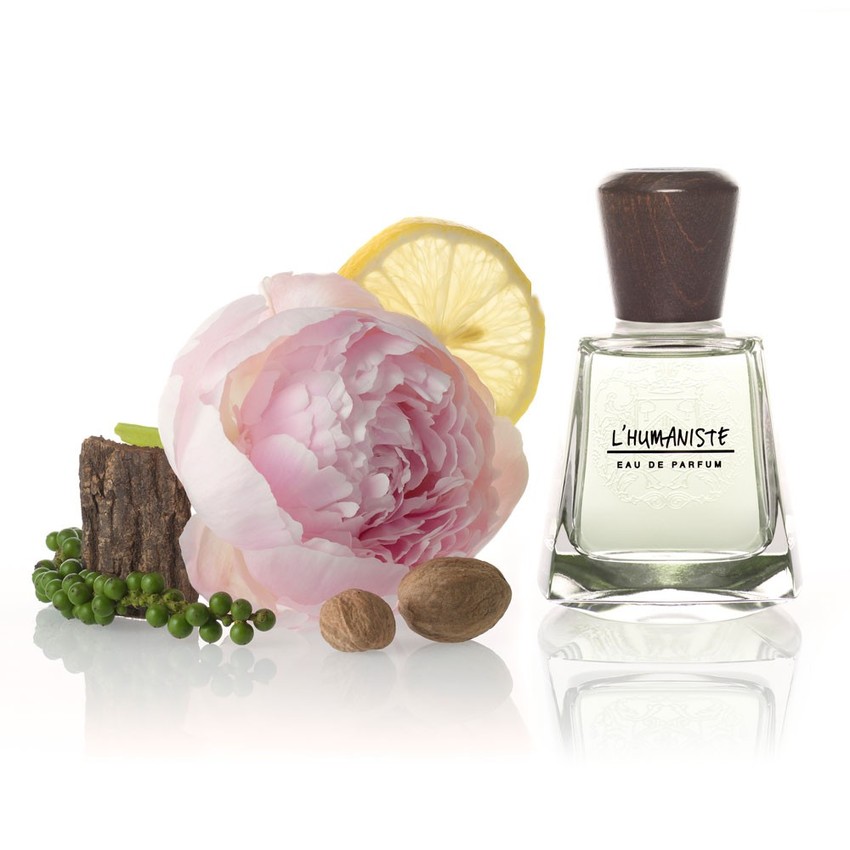 The grape harvest just took place in Paris in Montmartre like each year. Grape harvest news have been broadcast since August in France. Wine is one of the jewels of French culture (and exports) and it is therefore always, somehow, interesting to know how wine is doing, will be doing and what people can expect to see poured in their glasses at an ulterior date. To paraphrase Stendhal, like beauty, wine seems to be a promise of happiness in France. The news from the Bordeaux country are excellent (they tend to be always great hence the difficulty to sort out facts per the cited source). But according to Le Monde.fr, Saint-Emilion maker Hubert de Boüar exclaimed with particular enthusiasm this year that,
The grape harvest just took place in Paris in Montmartre like each year. Grape harvest news have been broadcast since August in France. Wine is one of the jewels of French culture (and exports) and it is therefore always, somehow, interesting to know how wine is doing, will be doing and what people can expect to see poured in their glasses at an ulterior date. To paraphrase Stendhal, like beauty, wine seems to be a promise of happiness in France. The news from the Bordeaux country are excellent (they tend to be always great hence the difficulty to sort out facts per the cited source). But according to Le Monde.fr, Saint-Emilion maker Hubert de Boüar exclaimed with particular enthusiasm this year that,
"J'ai un jeune labrador. C'est la première fois que je le vois croquer à pleine dent dans une grappe de merlot !"
"I have a young Labrador. It is the first time that I see it eagerly bite into a bunch of Merlot!
Wine is in the air and in two new perfume this fall, the other one being Angel Liqueur, which I already mentioned in an earlier post.
Notes are: top: lemon, bergamot, cardamom, pink peppercorn, black pepper; mid: juniper, nutmeg, thyme, peony; base: gin, oakmoss, tonka bean...
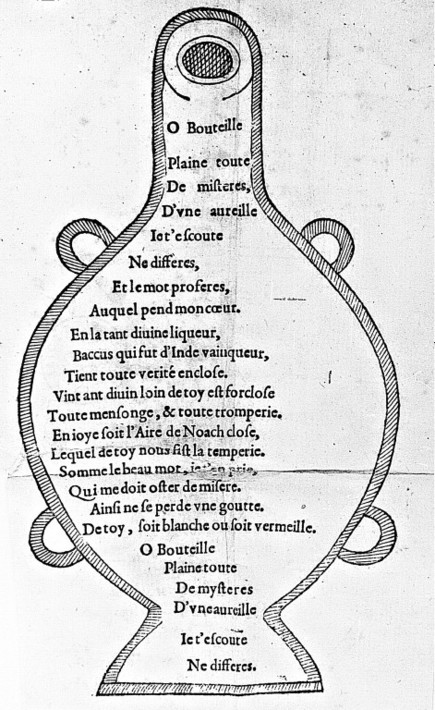
L'Humaniste, labeled as a masculine fragrance but with a definite unisex appeal, in my view, for women who like slightly dry and transparent fragrances, offers from the start a sparkling, white-wine effect -- the gin accord -- with a woody irisey undertone and a slightly more common-smelling, to my nose, woody-ambery facet. The zestiness and white-grape like accord instead of receding becomes more characteristic overtime, a fact that confers a winning simplicity of purpose to the perfume as I see it and I will explain why.
The woody-ambery facet seems to be here to bring an easily perceptible masculine note which could have been a bit more refined, in my opinion, but there is a pleasant fruity, zingy quality to the scent at the same time. Later on, the woody note takes on a powdery, cedar-y sawdust-like quality which is more suggested than obvious and which is reminiscent of the other woodsy compositions by Frapin, and in particular is like a faint echo of Caravelle Epicée. Outside the brand, it conjures up a lighter memory of Christian Lacroix Tumulte pour Homme which is a carpenter's idea of woodsy cedar-y heaven if it ever were to smell like a workshop.
My initial more general impression after the early development stages is that I could imagine wanting to reach out for it whenever I would want a burst of autumnal hesperides instead of the orange or citrus grove effects of a summery eau de cologne. I could see this as an autumnal interpretation of an eau de cologne made of white grapes.
With time, the ambery woods become a bit more subtle, with a light chocolatey nuance.
What is most striking about this single-minded composition is how what I call in my mind the Riesling accord persists, goes on and on but without feeling tedious or monocord. It is just very simple and effective. You will know why you are reaching out for this perfume: to get a burst of energy, to scent yourself with a tonic scent instead of drinking its equivalent.
Thanks to this functional clarity, in a manner of speaking, this scent makes simple sense. It does not try to be several things all at once. It possesses for me in this regard the simplicity of a chanson à boire, a drinking song, that waxes and wanes. It is a drinking song that is not typically bawdy à la Rabelais the jocund writer, but clear-minded like Rabelais the thinker and scientist. I don't think that he suffered from a schizoid personality, but let us say this to make a theoretical point.
There exists a whole tradition of sublime drunks. Poets have sung the deleterious powers of drinking, described its philosophical leanings, its taste for the absolute. I could imagine a collection of scents inspired by Saadi and ruby red Persian wine, Baudelaire and wine, again, Rimbaud and Verlaine and absinthe, Marlowe and malmsey...
L'Humaniste thus evolves from making you think of an autumn harvest with its light grape-y flavor, to evoking the figure of the humanist thanks to the mental clarity it demonstrates and conveys to you. It is not a boozy perfume that evokes stupor, languor, but on the contrary sharpness of the senses. We can also sense that through the still discernable smell of the grape harvest, the image of a glass of sparkling wine, a certain mellowness of the soul and empathy with our fellow men is expressed. But most of all, I am reminded of this tradition which seeks intellectual and creative inspiration in a glass of wine.
Rabelais himself expressed his position on this by re-utilizing a classical contrast made between the smell of burning oil (study) and that of wine (inspiration),
"L'odeur du vin, Ô combien est plus friand, riant, priant, plus celeste et delicieux que d'huile! Et prendray autant à gloire qu'on die de moi que plus en vin aye despendu que en huyle, que fist Demosthenes, quand de luy on disoit que plus en huile que en vin despendoit."
"The smell of wine, how much more appealing, gay and seductive, more heavenly and delicious it is than that of oil! I would be just as proud if people were to say about me that I depended more on wine than on oil as Demosthenes was when people said about him that he depended more on oil than on wine." (my translation)
But then at another bifurcation in the scent, when the warmer notes come to play in, it becomes less like the gin and tonic and medicine tonic it could appear to be and veers into a more atmospheric fragrance very much evocative of the fall, of being in the warmth of a small country house with the winds beating the moors outside.
As the scent prolongs itself, the light fruity nuance that existed before smells almost like osmanthus. I seem to pick up on hints of berries and now feel like a tastevin sniffing the contents of a glass of wine by making it roll around.
The transparent, clear and sparkling facet of the perfume can be seen to be a distant descendant of Elizabeth Arden Sunflowers and Aramis Nine West, with its minute doses of Calone and aldehydes. This geneaology which has been used mostly to suggest water in perfumery has been saddled here to suggest something richer yet limpid still, something more enlivening than clean. It does not smell clean. It smells tonic.
What I like most about this scent is its capacity to go beyond the materiality of the winey, boozy reference and to succeed in suggesting clarity of mind and a certain spiritual quality therefore that can be attached to the scent of wine. It is to me a quietly joyful fragrance. Could the perfume be described as lucid? Not to the extent that it gives you the impression that it wants to face truth at all costs and look into the eye of emptiness. No, it is a clarity of mind lulled, mellowed down by the comforts of good wine, and by extension by this wine culture, by a whole system that the French like to call art de vivre.







